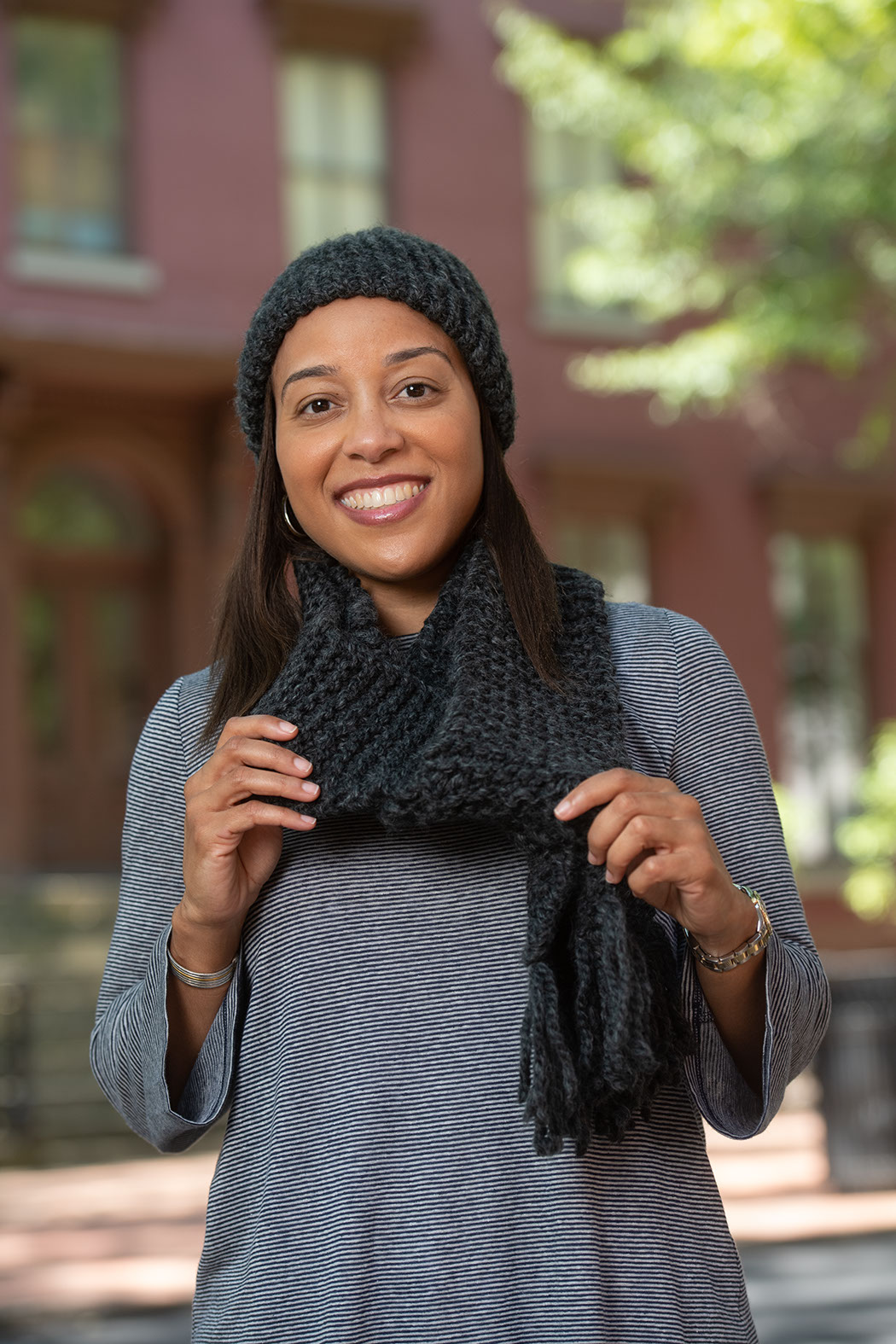 “Whether they are wealthy, have no insurance or are homeless,” says Denée Moore, M’13, H’16, “everyone should have access to affordable health care.”
“Whether they are wealthy, have no insurance or are homeless,” says Denée Moore, M’13, H’16, “everyone should have access to affordable health care.”
As an attending physician and clinical lead at Neighborhood Family Health Center, in Charlottesville, Virginia, Moore sees patients from around the globe, from rural areas and larger cities. She and her staff at the federally qualified health center provide preventive and acute care as well as chronic disease management.
One of Moore’s favorite aspects of her practice is providing prenatal care. But it’s not all about medicine. Three years ago, she took up knitting and now takes great pleasure in creating hats as welcome gifts for newborn babies.
“I wanted to do something special for them,” says Moore, who has vivid memories of her mother and great-grandmother knitting and crocheting. “I recently began crocheting blankets and knitting scarves, too, but the blankets are definitely a work in progress. I still get help from my mom.”
Moore’s practice provides prenatal care until 28 weeks, then transfers care to an obstetrician. But once the baby is born, Moore is on the scene again as one of the first to welcome him or her home with two hats – one newborn-sized and one to grow into – as well as a blanket for the stroller or car seat.
She’s found her new pastime to be calming but says it also “helps sharpen your fine motor skills and allows you to see the bigger picture. That translates well to medicine. You can’t just zero in on one part of the patient. You treat the whole person.”
 Moore, who lives in Richmond’s West End, is committed to giving back to her alma mater and its students. She interviews School of Medicine applicants and mentors students chosen for the school’s Family Medicine Scholars Training and Admission Track. The dual admission, four-year fmSTAT program is designed to develop, nurture and support medical students who are committed to a career in family medicine.
Moore, who lives in Richmond’s West End, is committed to giving back to her alma mater and its students. She interviews School of Medicine applicants and mentors students chosen for the school’s Family Medicine Scholars Training and Admission Track. The dual admission, four-year fmSTAT program is designed to develop, nurture and support medical students who are committed to a career in family medicine.
Other students also visit and work with Moore at her clinic. Third-year students can spend four weeks with her for their clerkship, while fourth-years stay for two weeks as an elective.
“The mentors I had throughout school really helped shape who I am as a person and physician,” Moore says. “I knew someone always had my back. That was priceless. I want to do the same for others.”
As a student, Moore also saw what a difference scholarships could make. She now makes her own gifts to support several funds, including the Jean L. Harris, M.D., Scholarship and the Lillian H. and Steward R. Moore Scholarship (no relation), both of which she received while a student. Moore also supports the fmSTAT Scholarship Fund.
“She is a gem,” says Judy Gary, M.Ed., assistant director of the Department of Family Medicine’s medical education programs. “She contributes in so many ways and embodies what we are looking for in a mentor.”
Moore grew up in rural Dinwiddie County, Virginia, where she witnessed how family practitioners could impact an underserved community. She dreamed of one day providing the same loving care.
“I was maybe 2 years old when I would use my Fisher-Price doctor’s kit to listen to my great-grandfather’s heartbeat and check his reflexes,” Moore says. “I just grew up knowing. I can’t imagine a better life than caring for the people around you.”